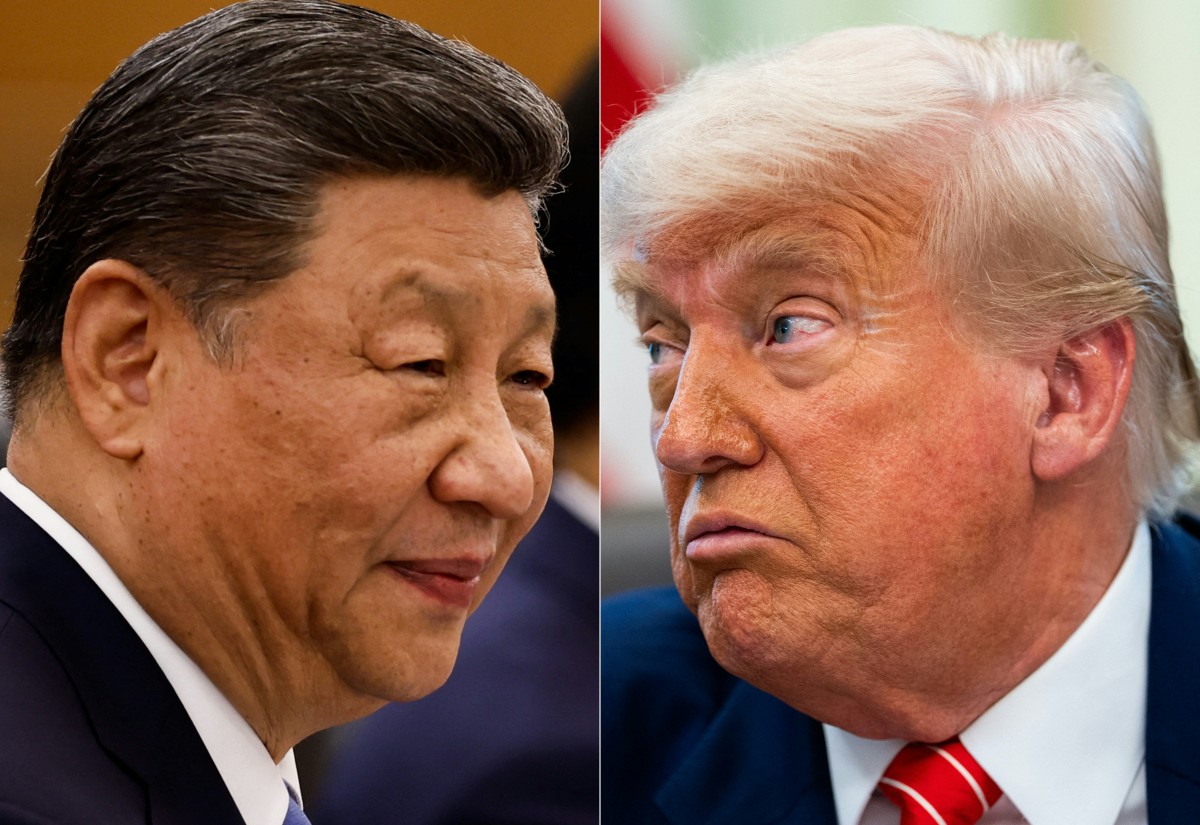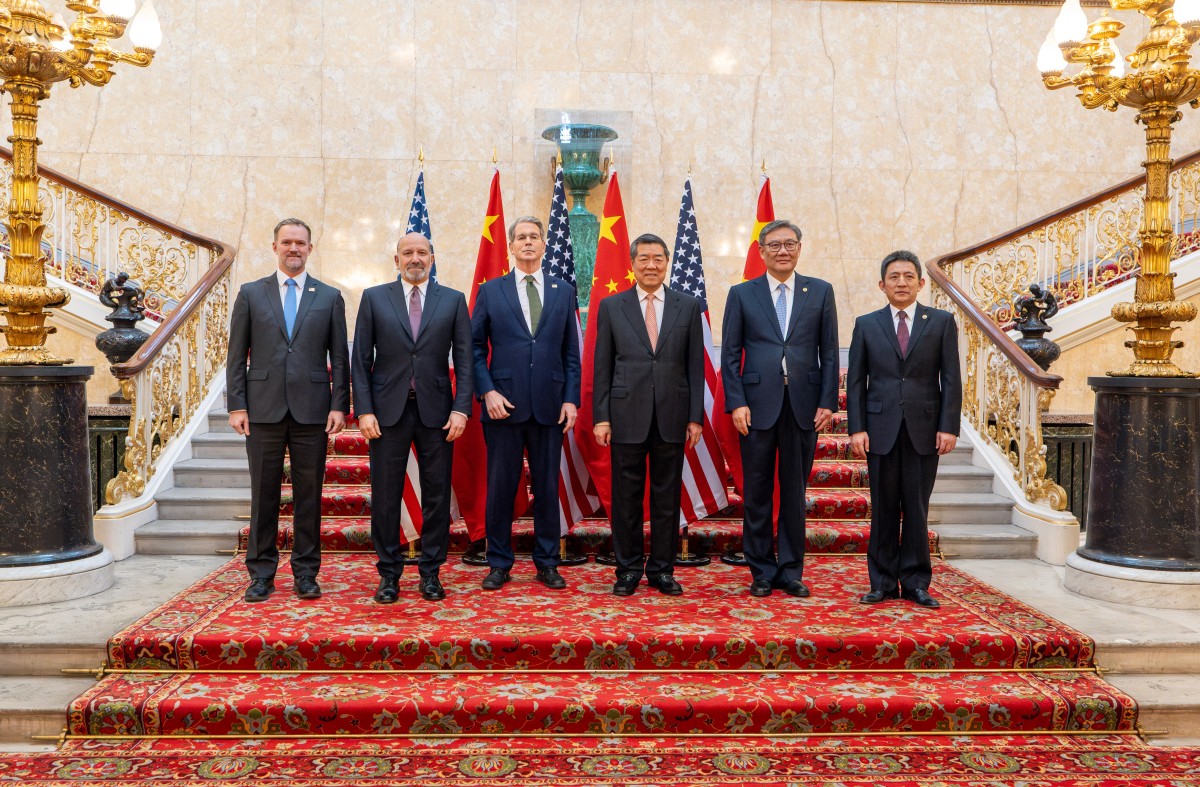
By Agence France-Presse
United States and Chinese officials are set to meet this Tuesday, June 10, for a second day of trade talks in London, seeking to shore up a shaky tariff truce in a spat further strained by export curbs.
The gathering of key officials from the world’s two biggest economies began on Monday, June 9, in the historic Lancaster House, run by the UK Foreign Office, following an earlier round of talks in Geneva last month.
Chinese Vice Premier He Lifeng was again heading the team in London, which included Commerce Minister Wang Wentao and China International Trade Representative Li Chenggang.
Treasury Secretary Scott Bessent, Commerce Secretary Howard Lutnick, and Trade Representative Jamieson Greer are leading the U.S. delegation.
A source familiar with negotiations told AFP that talks wrapped up on Monday evening and are expected to restart on Tuesday at 10:00 a.m. local time (0900 GMT).
The London meeting came after Washington accused Beijing of violating their Geneva deal to de-escalate staggeringly high tariffs. A key sticking point was the export of rare earths from China.
White House National Economic Council director Kevin Hassett told CNBC on Monday: “In Geneva, we had agreed to lower tariffs on them, and they had agreed to release the magnets and rare earths that we need throughout the economy.”
Hassett added, “But even though Beijing was releasing some supplies, it was going a lot slower than some companies believed was optimal.”
This issue was raised last week in U.S. President Donald Trump’s first publicly announced telephone talks with Chinese President Xi Jinping since the Republican’s return to the White House.
Trump said on his Truth Social platform that the long-awaited call reached a “very positive conclusion”.
On Monday, the U.S. leader told reporters that he was “only getting good reports” on the trade talks, adding: “We are doing well with China. China is not easy.”

U.S. easing curbs?
U.S. official Hassett said he expected “a big, strong handshake” at the trade negotiations.
He added, “Our expectation is that after the handshake, any export controls from the U.S. will be eased, and the rare earths will be released in volume. Both sides can then go back to negotiating smaller matters.”
Tensions between Washington and Beijing have soared since Trump took office, with both countries engaging in a tariff war that took duties on each other’s exports to three figures—an effective trade embargo.
The Geneva pact to cool tensions temporarily brought new U.S. tariffs on Chinese goods from 145 percent to 30 percent, and Chinese countermeasures from 125 percent to 10 percent.
But Trump recently said China “totally violated” the deal. A key issue was Beijing’s shipments of rare earths, crucial to goods including electric vehicle batteries.
Kathleen Brooks, research director at trading group XTB, said, “Rare earth shipments from China to the U.S. have slowed since President Trump’s ‘Liberation Day’ tariffs in April.”
Brooks was referring to when Trump slapped sweeping levies of 10 percent on friend and foe alike, and threatened steeper rates on dozens of economies.
She added, “The U.S. wants these shipments to be reinstated, while China wants the U.S. to rethink immigration curbs on students, restrictions on access to advanced technology including microchips, and to make it easier for Chinese tech providers to access U.S. consumers.”
Hassett’s statement signaled the Trump administration might be willing to ease some recent curbs on tech exports.
‘Green channel’
Throughout its talks with Washington, China has also launched discussions with other trading partners—including Japan and South Korea—to try to build a united front to counter Trump’s tariffs.
On June 5, Beijing and Canada agreed to regularize their channels of communication after strained ties.
Beijing has also proposed establishing a “green channel” to ease exports of rare earths to the European Union, and fast-track the approval of some export licenses.
China is expected to host a summit with the EU in July, marking 50 years since Beijing and Brussels established diplomatic ties.
According to a UK government spokesperson, Finance Minister Rachel Reeves took advantage of the London talks to meet with her U.S. counterpart Bessent and Chinese Vice Premier He on Sunday, June 8.
